Two "Gasconades" by Joachim Murat
Napoleon was now about to put an end to the centuries-old confrontation between France and Britain, destroying English influence on continental countries:
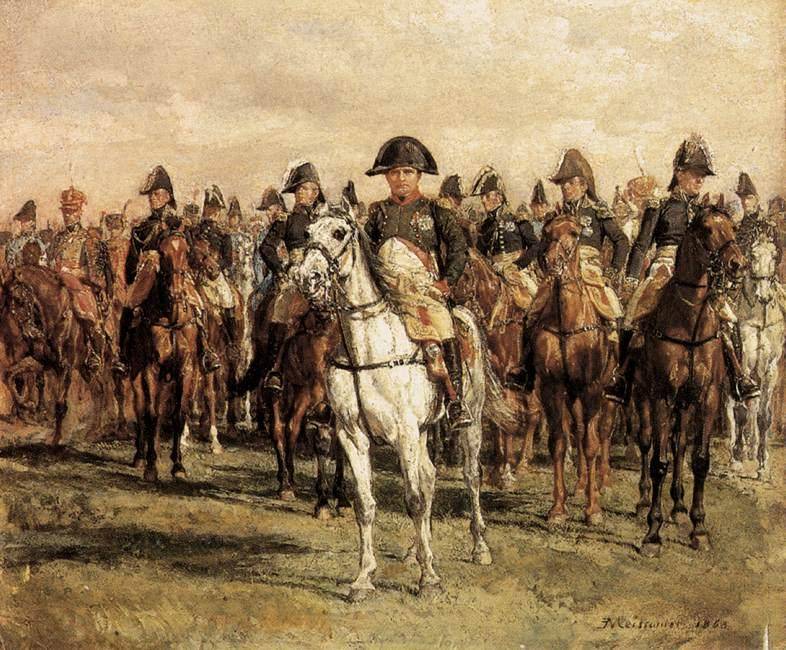
The British pretended that everything was going according to plan, and painted funny caricatures:
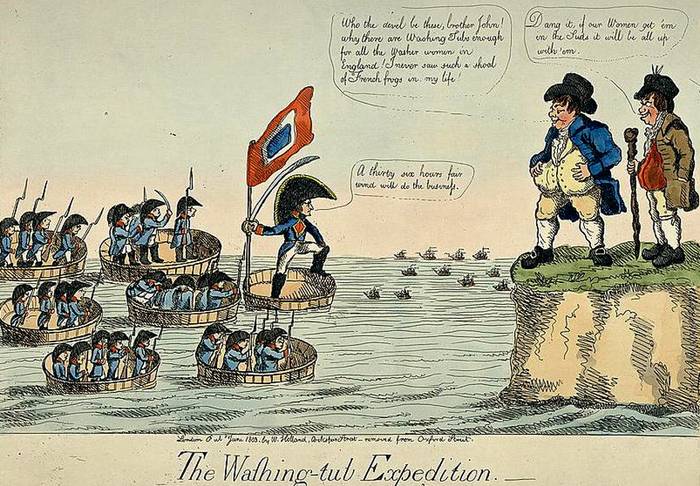
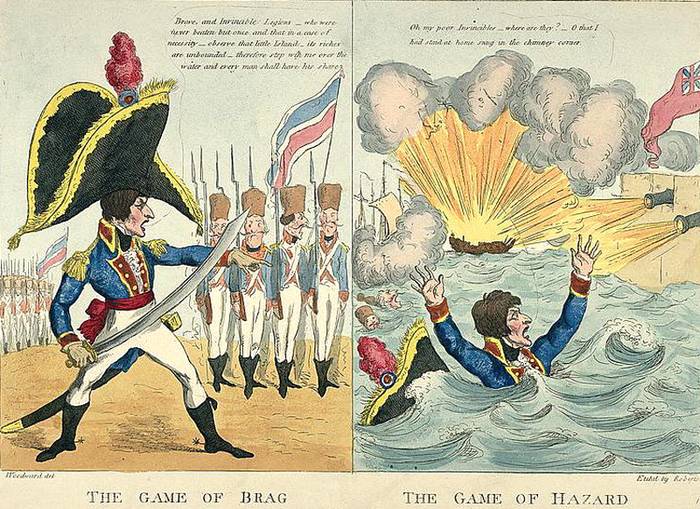
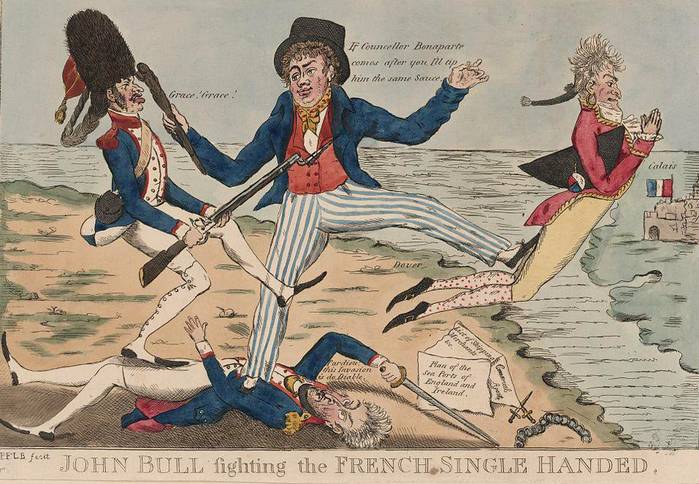
However, in fact, in London they perfectly understood that if at least half of Napoleon’s army sailed to the English coast, King George III, together with his cabinet, would have to urgently emigrate to Canada.
In this situation, the British Prime Minister William Pitt the Younger acted according to the traditional English scheme, instead of putting up an invincible army of bags of gold instead of soldiers. For the British had to shed their blood subjects of the Austrian Empire and Russia.
But why did Russia need this war, which did not even have a common border with the state of Napoleon? Given that Napoleon would gladly share the world with Russia - at the expense of Britain, which he hates, of course.
One of the motives of Alexander I was his personal hatred of Napoleon, who in one of the letters dared to tell him the truth, very transparently hinting at his participation in the plot against his own father - Paul I:
Alexander I, contrary to a liberal legend, was very capricious and masterful, but at the same time a weak ruler. Here is the characteristic M. M. gave him Speransky:
But he really wanted to manage - everything and everyone. G. Derzhavin, who at one time looked at Alexander I through the "pink glasses", the emperor replied:
The British historian M. Jenkins will later write about him:
At heart, Alexander I understood his inferiority - the flaw that Napoleon had a very good understanding of people:
Therefore, Alexander I adored flattery and did not tolerate even the slightest hint of criticism. But Napoleon hit the most painful place - he dared to remind him of the sin of patricide, which nevertheless burdened his conscience. And so Alexander kept his hatred of the French emperor for life.
The second factor was the notorious "bags of gold": British gentlemen paid well for Russian blood - above the "market price" of serfs in Russia. According to the agreement of March 30 1805, the British gave 12,5 million rubles for 100 thousand soldiers (125 rubles per head), and even a quarter of this amount for mobilization. That is, the cost of one soldier reached 156 rubles 25 kopecks. And the “audit souls” in Russia at that time cost from 70 to 120 rubles.
Finally, the third factor pushing Alexander toward an alliance with England was the desire of Russian aristocrats to lead a European lifestyle. And they could get currency for traveling abroad, arranging their city mansions and country estates, and paying for the services of foreign specialists (from cooks and governesses to estate managers and architects) only from trade with Britain.
- wrote in his classic work "Napoleon" Eugene Tarle.
The autocracy in Russia at that time was very “limited by a noose”, and Alexander did not want to end his life in any “secluded and very pleasant place” like Ropsha.
(E. Tarle.)
Alexander’s desire to fight with the “offender”, and at the same time earn money by trading his subjects, was so great that Russian diplomacy made considerable efforts to persuade the Austrians who were terribly afraid of the armies of the “Little Corsican” to join the coalition.
Of course, you know that this war did not bring any glory to Russia; on the contrary, it ended with the unprecedented humiliation of Austerlitz and the vain victims of the subsequent campaign of 1806-1807. Before the Battle of Austerlitz, for almost 100 years (after the Prut catastrophe of Peter I - 1711), the Russian army did not lose a single general battle. And so the disaster in this battle made a terrible impression on Russian society. Sardinian envoy to Russia Joseph de Mestre reported on the mood in St. Petersburg:
But we will not now examine in detail the course of the 1805 campaign, confining ourselves to its two episodes in which the hero of our article showed both extraordinary resourcefulness and simplicity. And who, unusually accurate and bold, paint before us the image of this outstanding person.
Joachim Murat: the brave "king from the boulevard stage"
Arman de Colencourt called Murat "the bravest of kings and the king of brave men" - and there was no man in the world who would undertake to challenge this statement.
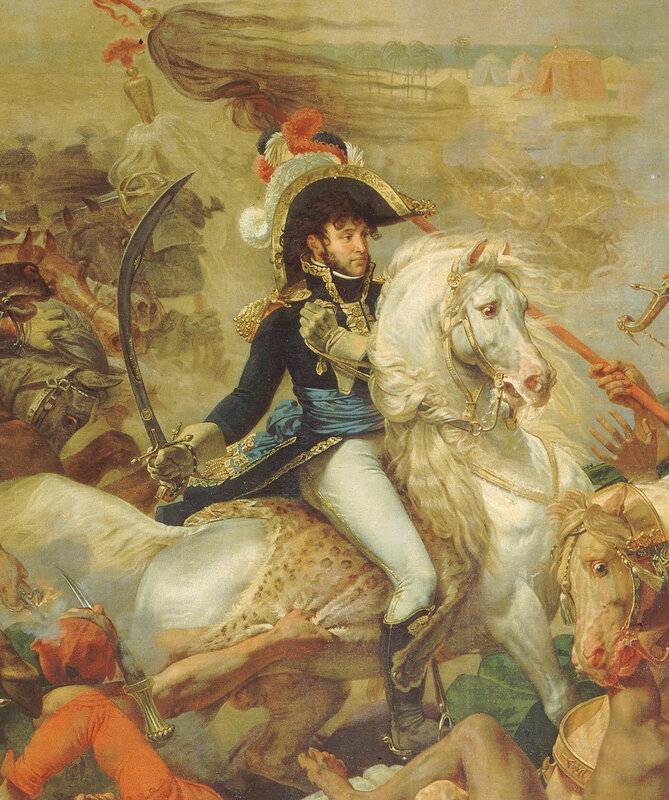
Napoleon spoke of him:
And:
But he was well aware of Murat’s shortcomings:
Tular wrote:
В history Murat’s words from the report to Napoleon entered:
Countess Potocka, recalling in her memoirs about the entry of Joachim Murat to Warsaw (November 28 1806), writes:
Kolenkur also recalls his "ill-fated passion for magnificent costumes", which led to the fact that Murat "had the appearance of a king from the boulevard stage."
For this passion for theatrical effects and magnificent costumes, contemporaries also called him "a cross between a peacock and a clown."
Marshal Lannes, without any shyness, called Murat “a rooster,” “a jester,” and said that he “looked like a dog who was dancing.”
But the desperate courage of the charismatic Gascon was recognized by everyone - both friends and enemies.
Segur spoke of him:
Let's get back to the 1805 military campaign of the year.
Said Napoleon, and his army marched out of the Boulogne camp.
"Caesar's campaign" of the Russian army
On August 13, the so-called “Caesar’s campaign” was launched by the Podolian army of M. Kutuzov (about 58 thousand people), to which the Volyn army of Buksgevden (48 thousand soldiers) and the guards of the Lithuanian army of Essen I joined. The Russian troops with six “echelons” moving on at a distance of one day’s passage from each other, they marched with the Austrian army, which was nominally commanded by Archduke Ferdinand, but the quartermaster General Karl Mack actually had power.
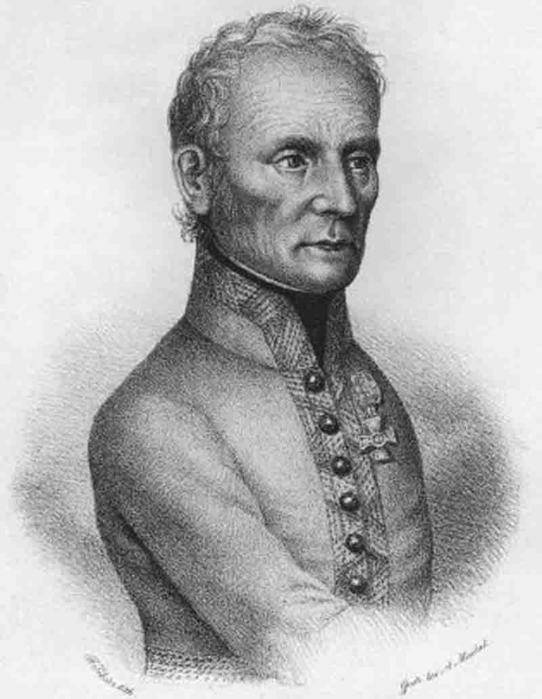
Napoleon, who later became better acquainted with Mac in Paris, left such a review about him:
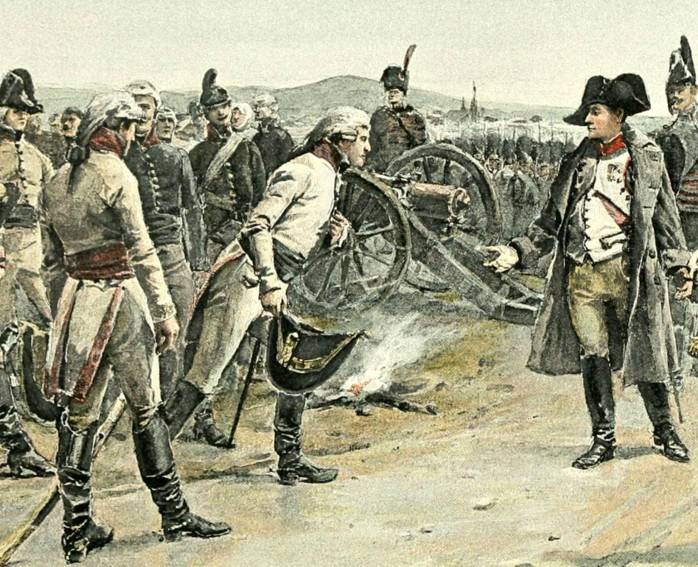
It was Mack who made the fateful decision: without waiting for Kutuzov’s army, to move to Bavaria, to the Iller River. Napoleon, whose army made a model transition from the Bois de Boulogne (from the English Channel to the Danube, the French reached 20 days), took full advantage of Mac's mistake. The first to approach Ulm were Ney's corps, Lanna and Murat's cavalry. On October 15 Ney and Lannes took the heights surrounding Ulm, which made the position of the surrounded Austrians almost hopeless. Napoleon demanded surrender, threatening not to spare anyone in the event of an assault.
On October 20 of 1805, almost the entire army of Mac (32 thousands of people) and the Ulm fortress with all military supplies, artillery (200 cannons), and banners (90) were surrendered to the French. In addition, Murat’s cavalrymen captured 8 of thousands of soldiers outside the fortress. Mack was released as unnecessary, and his soldiers were sent to France as a free labor force: it was necessary for someone to replace the men who served in the French army.
Only two units of this army with a total number of 15 thousand people managed to break out of the encirclement. The first, led by Ferdinand (about 5 thousand), went to Bohemia, the other, under the command of Kinmeier (about 10 thousand), later joined the Kutuzov army on the Inn River. Napoleon also went there, and Kutuzov moved to Vienna, hoping to meet reinforcements from Russia and Austrian units coming from Italy and Tyrol on his way.
On 28 on October, the Russian army crossed the Danube at Mautern, destroying the bridge behind them, and having fired a blow at the Mortier corps, which appeared on the left bank of this river. According to Napoleon’s plan, this building was the first to approach the bridge, blocking the way for the Russians, but was late.
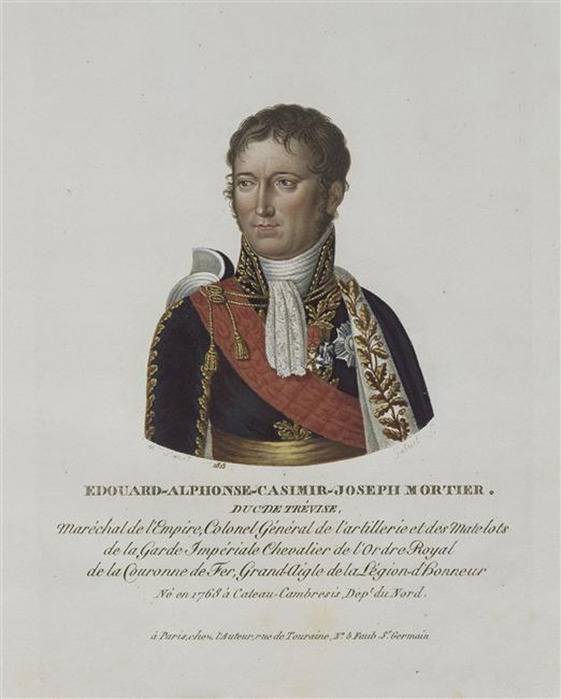
In the battle of Krems, which is also called the Battle of Dürrenstein (October 30), the Russian army failed to completely defeat the French, the Mortier corps, although it suffered heavy losses, managed to cross to the right bank. Now Kutuzov, whose army was separated from the French by the deep Danube, had three options: he could give his troops rest, staying at Krems, he could go east - towards the army of Buxgevden, who was in a hurry to help, he could move towards Vienna. He chose the first option, which turned out to be the worst. However, the Russian commander, of course, could not predict the incredible events that will now be discussed. And now it's time to appear on the scene the main character of our article - Joachim Murat.
Murat, who commanded the cavalry of Napoleon’s army, received an order, together with the corps of Lann, Sult and the grenadier division of Udino, to go to Vienna, strategically capturing two important bridges across the Danube: Taborsky, about 100 meters long, and Shpitsky, whose length was 430 meters. The capture of these bridges allowed the French to enter the rear of Kutuzov’s army.
The defense of the bridges seemed a very simple task, since they were mined in time, covered by artillery batteries and protected by the 13-thousandth Austrian corps. The Austrian units were given the strictest order to destroy the bridges at the first appearance of enemy soldiers. But the French were commanded by a very hot rootless Gascon Joachim Murat, the Austrians - by the arrogant aristocrat, Prince Karl Auersperg von Mautern, who was previously the commander of the "toy soldiers" of the court guard.
And therefore, everything went completely different from what the Austrian Emperor Franz I and M.I. Kutuzov.
The first "Gasconade" of Murat
In the novel by L.N. Tolstoy's “War and Peace”, adjutant Kutuzova Bilibin describes these events in this way:
“Gentlemen,” one says, “you know that the Tabor bridge is mined and counter-contaminated, and that in front of it is the formidable tête de pont and fifteen thousand troops who are ordered to blow up the bridge and not let us in.” But our sovereign Emperor Napoleon will be pleased if we take this bridge. Three of us go and take this bridge.
- Come on, others say;
and they set off, and take the bridge, cross it, and now with the whole army on this side of the Danube are heading towards us. ”
How did all this actually happen?
On October 31, French parliamentarians came to Tabor Bridge, notifying that Marshal Murat would arrive here soon to negotiate with Auersperg. Generals Henri-Gracienne Bertrand, the adjutant of Napoleon (and the Gascon, concurrently), and Moissel (who was not a Gascon, but was an artillery commander of the Murat corps) soon appeared.
The brave generals “covered themselves” with them the four cavalry regiments (two hussar and two dragoon regiments) moving behind them, the grenadier division, and at the same time also three guns. The "parliamentarians" had a friendly conversation with the Austrian lieutenant, and their subordinates at that time insolently broke locks on the lowered bridge grate. Ordinary Austrian soldiers opened fire, and everything would have ended quite safely - if Colonel Goeringer had not been nearby. Bertrand “on a blue eye” told him that France and Austria had signed an agreement on the cessation of hostilities, but the main condition for further peace negotiations is the safety of the Tabor and Spitz bridge. The stunned Goeringer let Bertrand and Moissel "to his side" for negotiations with Auersperg. The deputy prince - General Kinmeier (the one who managed to withdraw 10 of thousands of his soldiers from Ulm), begged him, without entering into negotiations, to order the destruction of the bridge, but Auersperg was above reasonable arguments. He appeared on the bridge (where he was kindly greeted by another Gascon - General Augustin-Daniel de Béllard, chief of staff of the cavalry reserve of the Murat’s corps) and quite graciously listened to Bertrand’s complaints about the lack of discipline of his subordinates, who almost wrecked negotiations on peace through unauthorized actions. The last person who could save Vienna and the honor of Austria was an unnamed corporal: he shouted to the commander that the French were deceiving him, and, frustrated by such disrespect, Auersperg ordered his arrest. A few minutes later, the first French platoon had already burst on the other side of the bridge and began to mine it. The following French troops engaged in Austrian cannons.
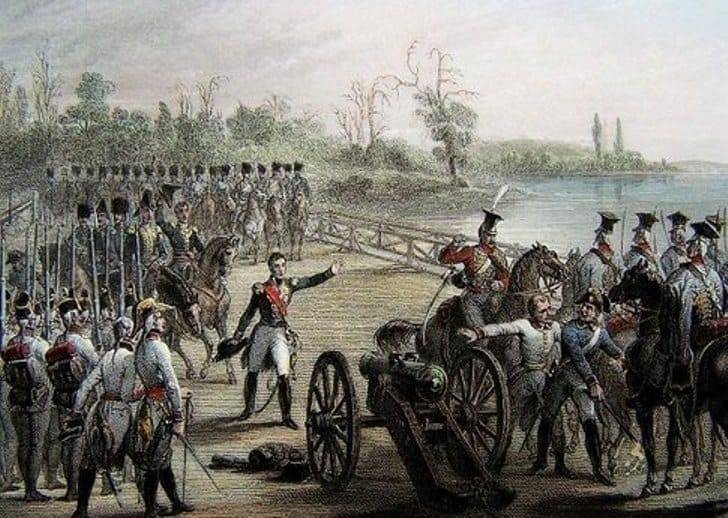
In Austria, this tragicomic incident was called the "miracle of the Vienna bridge."
Later, the military tribunal sentenced Aursperg to be shot, but the emperor had mercy on him. When those responsible for failure and catastrophe avoid punishment only because they are aristocrats and representatives of ancient deserved families, empires and kingdoms are doomed, you can turn on the “countdown timer”. But the "old monarchies" lack the instinct of self-preservation, nothing can be done.
On 1 (13) on November 1805, French troops entered Vienna, where they captured just an indecent amount weapons (guns around 2000 alone), ammunition, equipment and food.
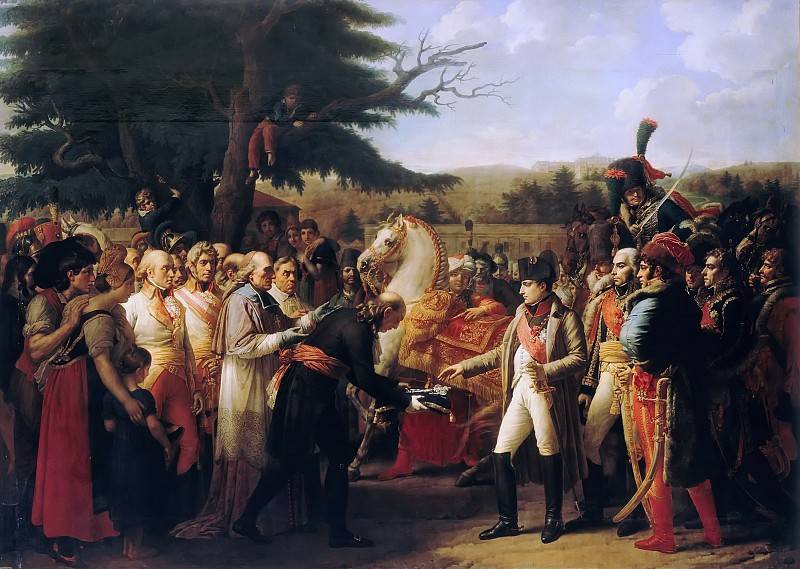
Thus ended the first "gascon" of Joachim Murat.
The second "Gasconade" by Joachim Murat.
After the loss of the Danube bridges, the troops of Kutuzov found themselves in a very difficult situation. Now it was necessary not even to go, but to run towards the army of Buxgeden. On the night of November 2 (14), Kutuzov’s army set in motion. There were roads every hour and therefore all sick and wounded were left in Krems. To cover the right flank, Kutuzov singled out a rearguard, commanded by Major General P.I. Bagration.
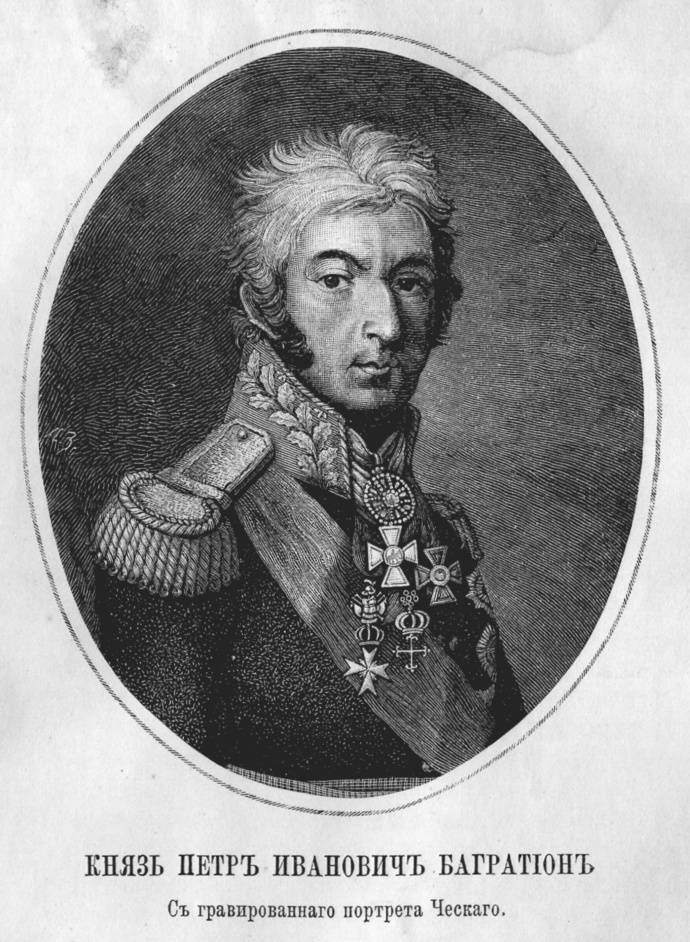
At his disposal were the following regiments: Kiev and Little Russian Grenadiers, Podolsky and Azov Musketeers, 6-th Jaegers, Chernigov Dragoons, Pavlograd Hussars, two Cossacks. Also, his detachment was given an artillery company from the 4 th artillery regiment and the Austrian hussar regiment under the command of Count Nostitz.
On 3 (15) on November 1805, these units occupied positions north of the city of Hollabrunn - at the villages of Schöngraben and Grund. Murat came up here too soon. The loud success at the Danube bridges turned his head, and he decided to repeat the same "Gascon trick" with another enemy. The first part of the “trick” he succeeded: having discovered the regiment of Nostitz in front of him, Murat informed the Count that peace had been concluded between Austria and France. And as evidence, he spoke about the free passage of the French army through the Danube bridges to Vienna. To believe that the French could capture them without a fight was, indeed, difficult. P. Bagration tried in vain to dissuade the Austrian count - Nostitz left, leaving the Russian allies.
Let us digress briefly to draw attention to how easily Nostitz believed in the very possibility of concluding a separate peace with France. And let us inform you that Emperor Franz I, before fleeing Vienna, indeed proposed such a treaty to Napoleon, but he, realizing that the campaign had already been practically won after Ulm, decided to end the war with a spectacular blow that was supposed to break the morale of the opponents and destroy their will to resist. Therefore, he then refused to negotiate. With regard to the Austrians, his calculation was correct.
Now back to Murat, who made a mistake by accepting the rearguard units for the entire Russian army. Not a bit embarrassed, he decided to deceive the Russians too: “pull the time” until the corps of Marshal Sult approached - under the pretext of peace negotiations, of course. Kutuzov and Bagration gladly played along with him: Adjutant General F. Wincengerode (Thuringian German in Russian service) was sent to Murat as a parliamentarian, who, as it turned out, knew how to “blurt out” no worse than the Gasconians.
Even a certain ceasefire document was signed, copies of which were sent to Kutuzov and Napoleon. And the Russian army during the negotiations managed to break away from the French at a distance of two crossings.
Napoleon was simply amazed and enraged by the suspension of Murat’s movement. He sent him a severe reprimand ordering him to immediately attack Bagration. On November 4, the 20 thousandth French corps attacked the 7 thousandth Russian detachment. It was the famous Schöngraben battle, from which Bagration came out, losing a third of the personnel and 8 guns that got stuck in the mud.
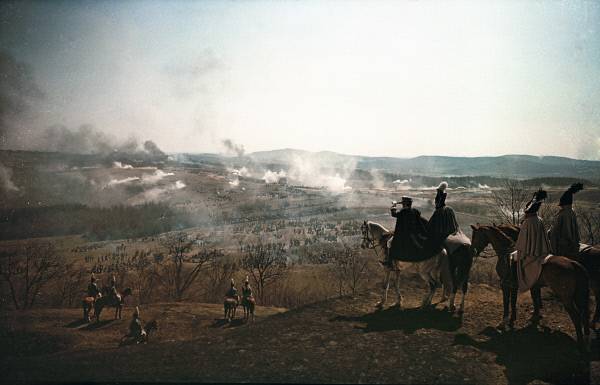
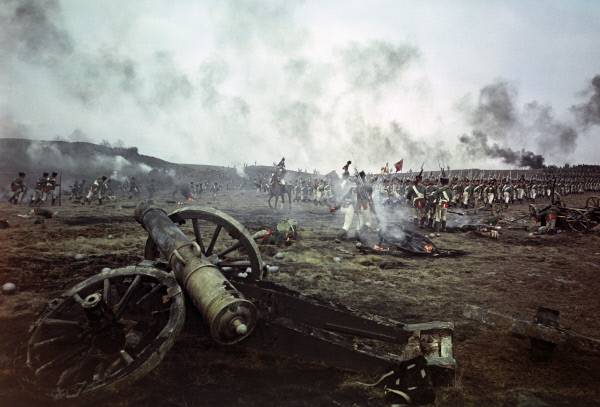
On November 6, Bagration’s detachment joined Kutuzov’s army in Pogorlitsa. The commander met him with famous words:
In November this year, Bagration received the rank of lieutenant general.
And the troops of Kutuzov on 7 on November 1805 in Wichau safely connected with the army of Buxgevden (27 thousand people). Ahead was the battle of Austerlitz, a story about which is beyond the scope of this article. You can read a short story about him in the article. Damn general. Nikolai Kamensky and his nickname Suvorov - The chapter "1805-1807 Military Campaigns."
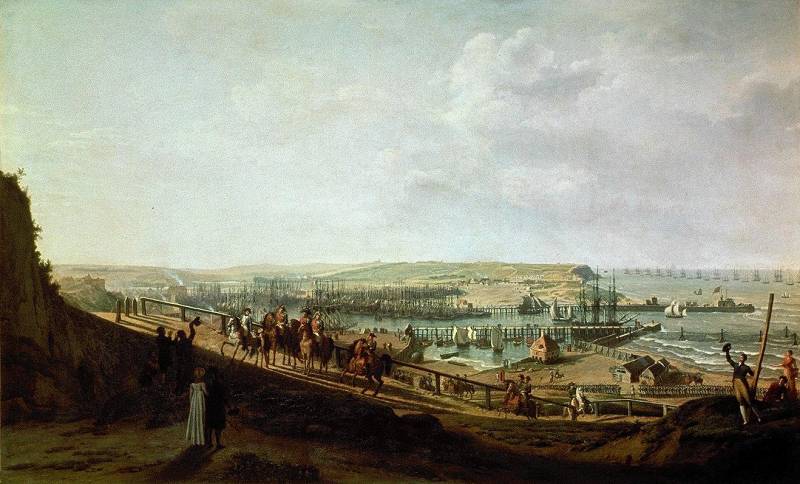
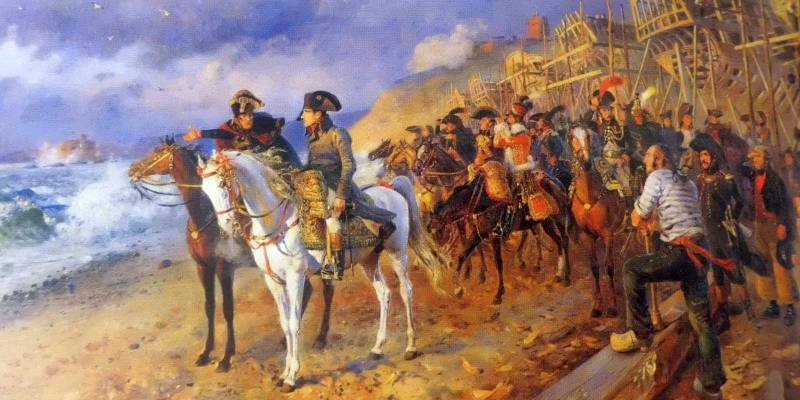
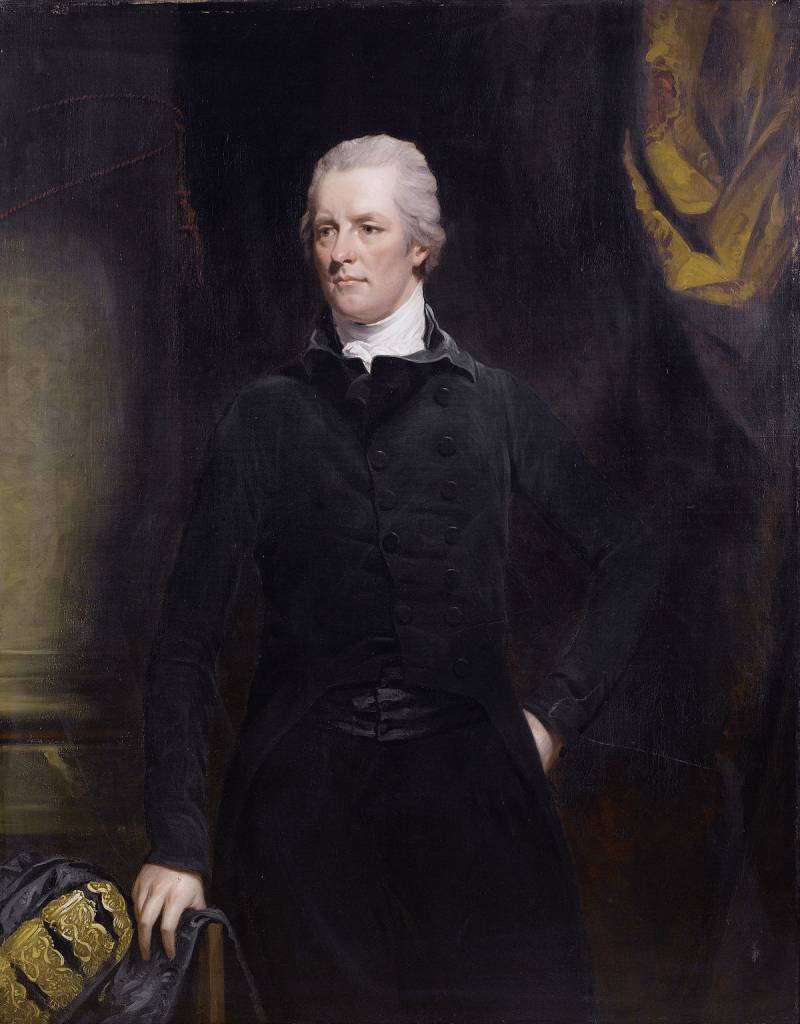
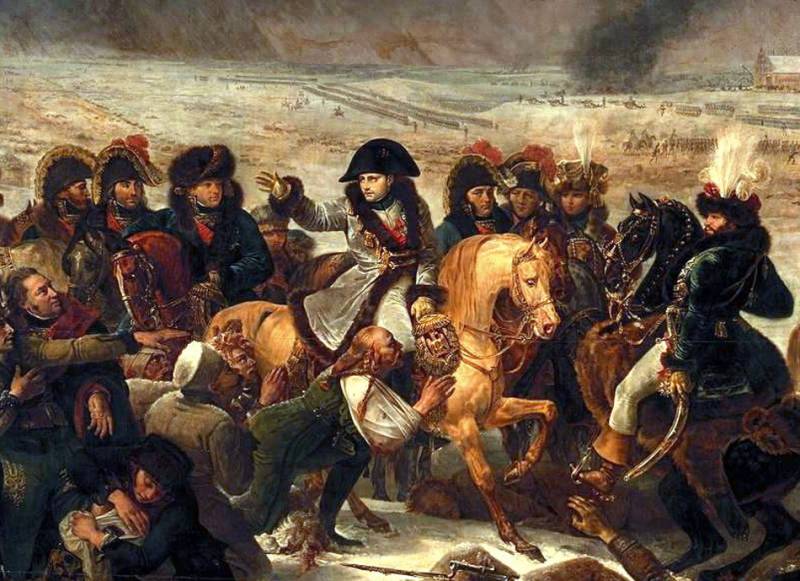
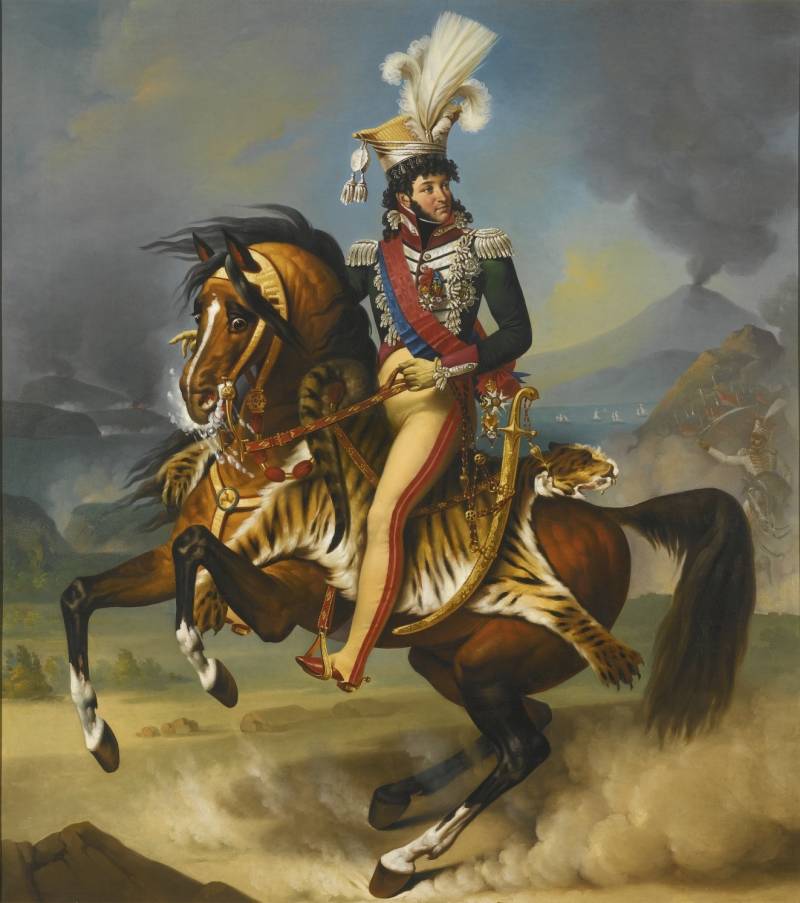
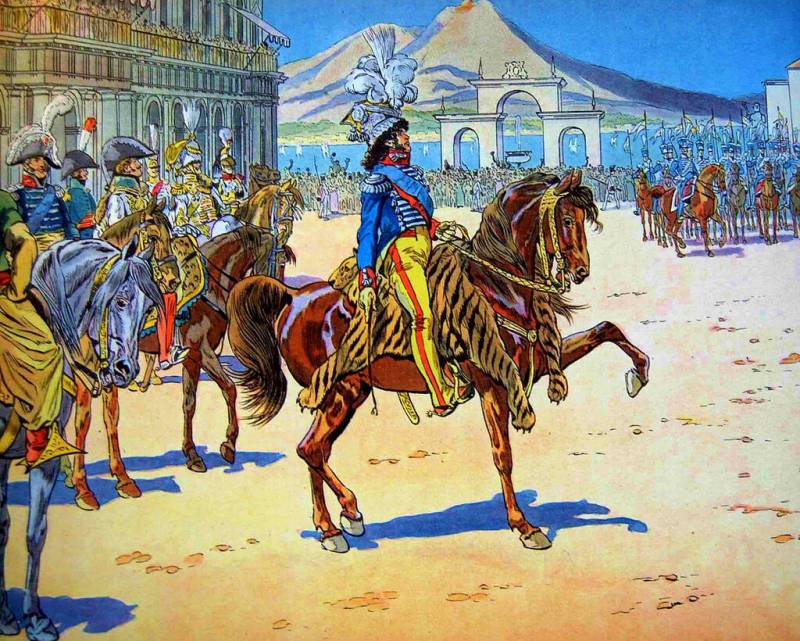
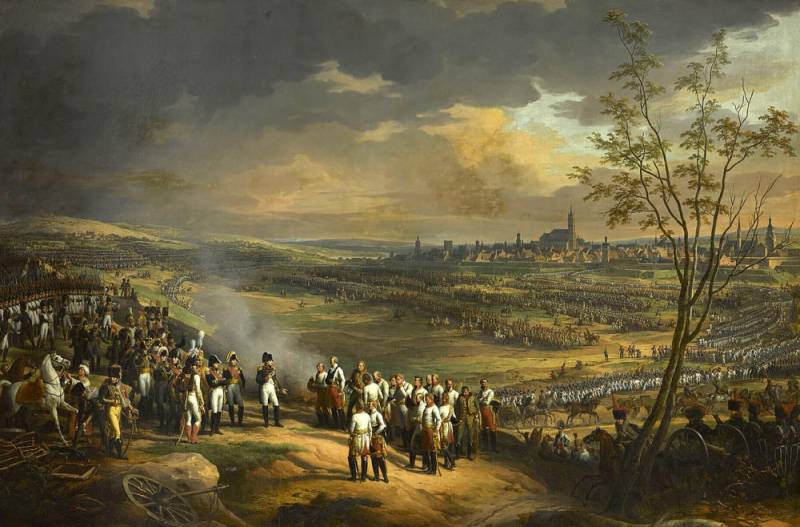
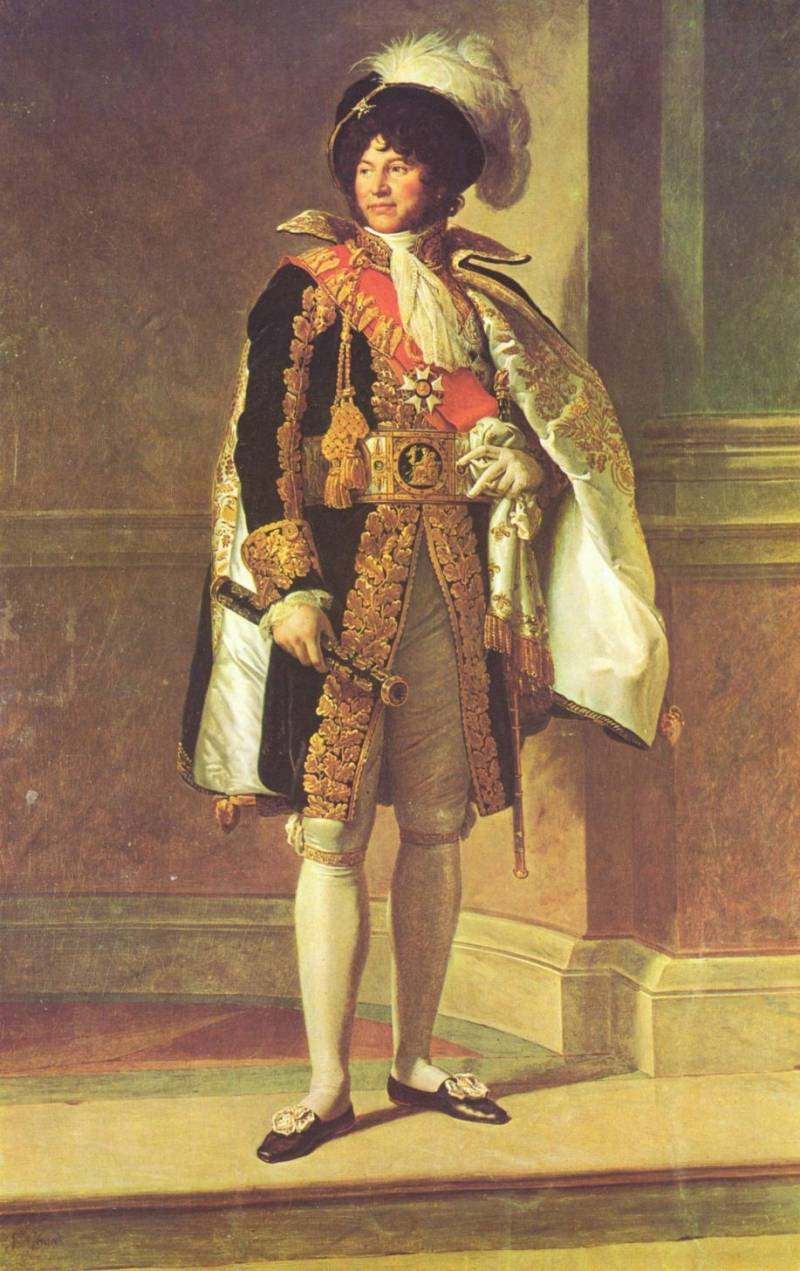
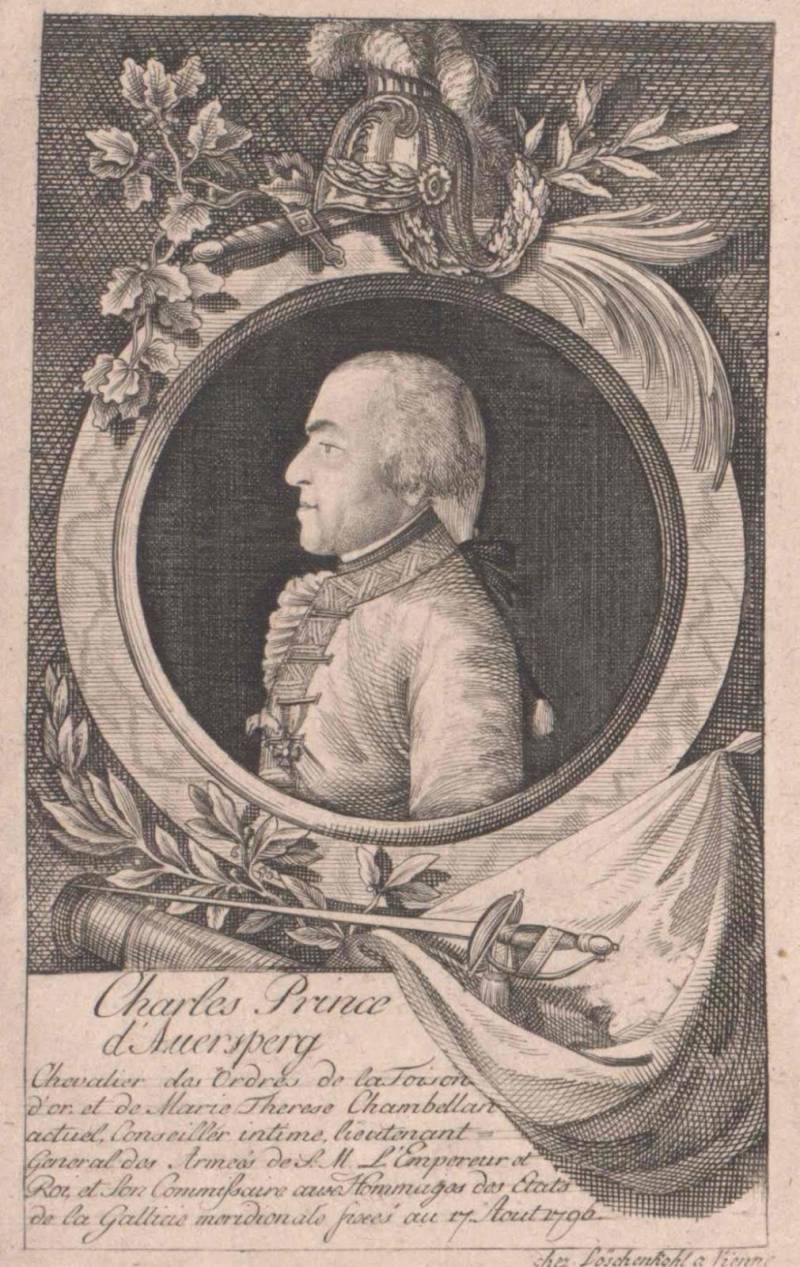
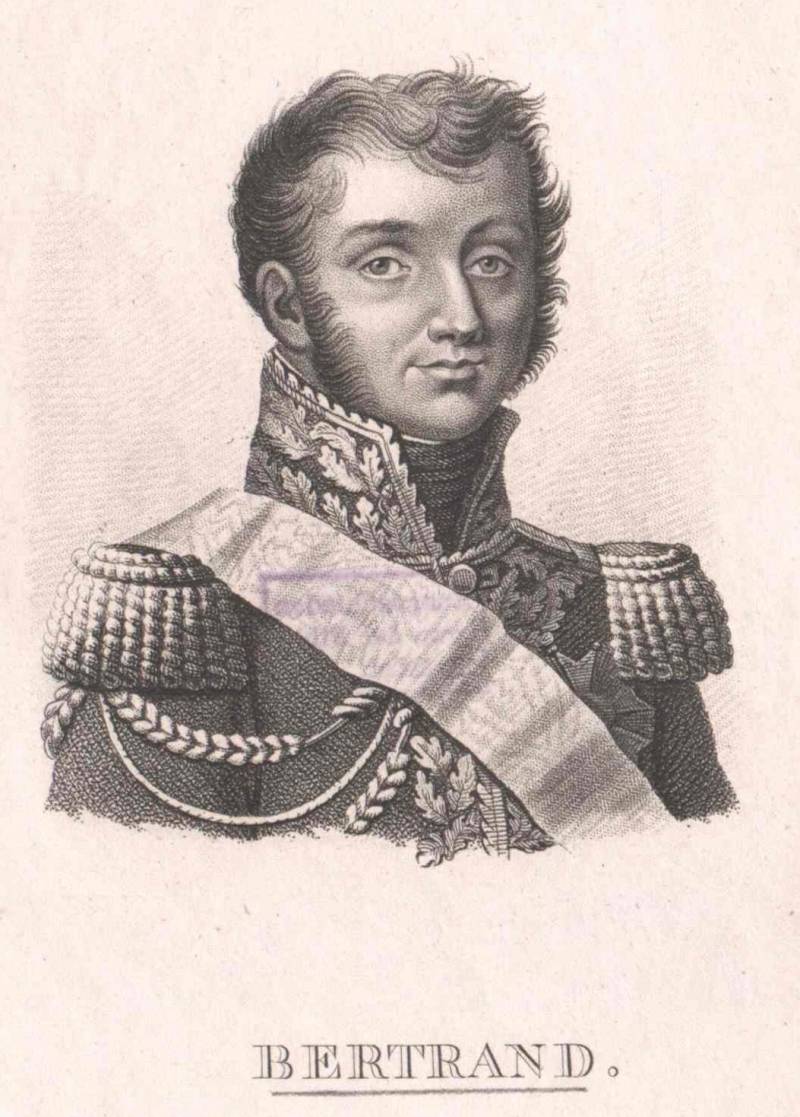
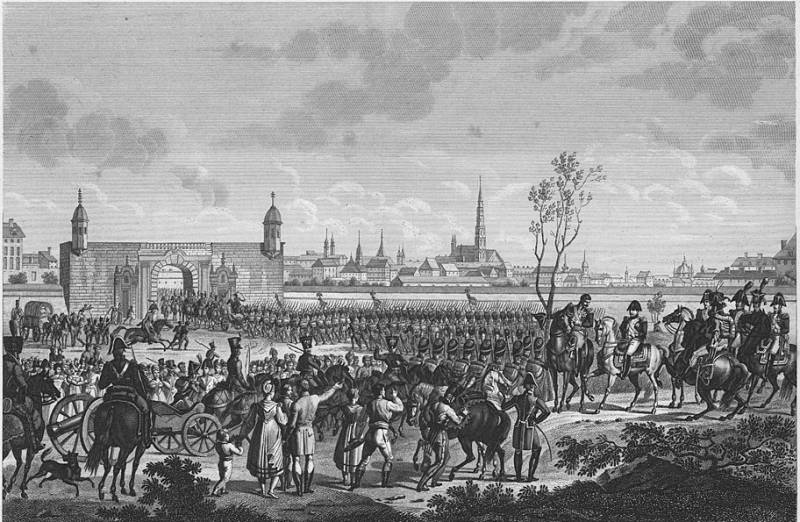
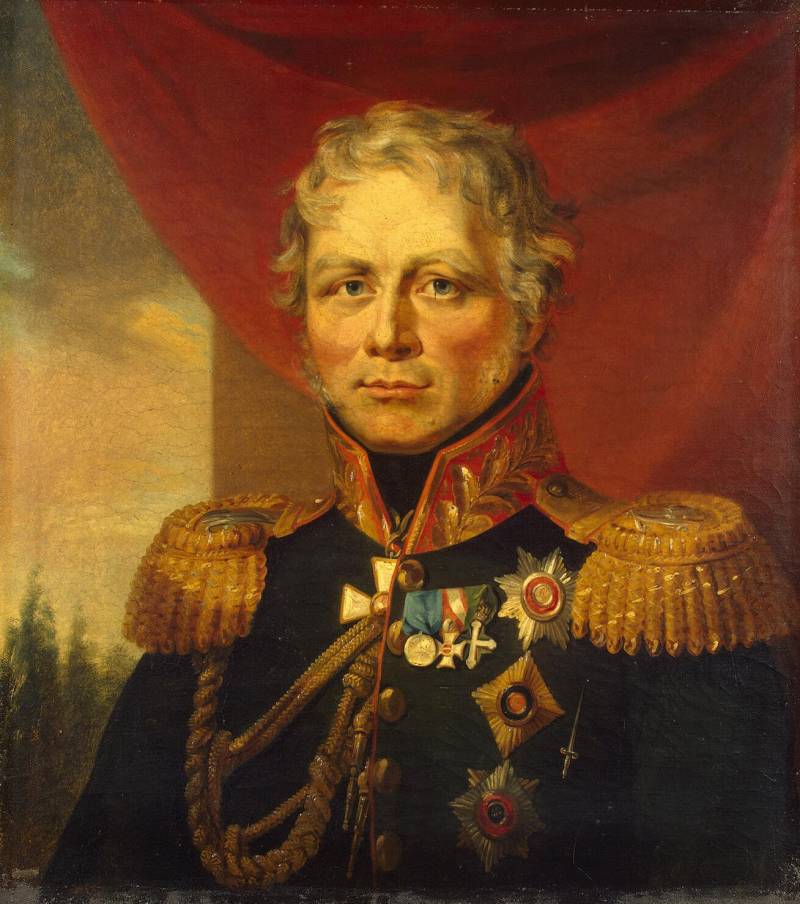
Information